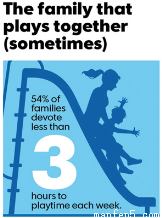题目内容
根据短文内容,从短文后的选项中选出能填入空白处的最佳选项。选项中有两项为多余选项。
America’s holiday shopping season started on Black Friday, the day after Thanksgiving.
1. Shoppers make the most money this time of year, about 20 percent to 30 percent of all revenue all year. About 136 million people shopped during the Thanksgiving Holiday weekend.
2. In an era of instant information, shoppers can use their mobile phones to find deals. Nearly 80 percent of this year’s holiday shoppers, or about 183.8 million people, shopped on Cyber Monday. 3. Online spending on Black Friday rose 15 percent to hit $2.7 billion this year. Cyber Monday spending increased 12 percent to $3 billion. NBC News reported that for many, shopping online was a more comfortable alternative than crowded malls.
The shift to online shopping has had a big impact on solid shopping malls. Since 2010, more than 24 shopping malls have closed and an additional 60 are struggling. Fortune says the weakest of the malls have closed. However, the business in malls is thriving again, it adds. According to a survey, 94.2percent of malls were full with shops by the end of 2014. 4.
The average American consumer will spend about $805 on gifts. That’s about $630.5 billion between November and December – an increase of 3.7 percent from last year.
5. That goes to China’s Singles’ Day, celebrated on November 11, which posted record sales of $14.3 billion in 2015.
A.More and more people shop online nowadays.
B.That is the highest level in 27 years.
C.It is the busiest shopping day of the year.
D.One-in-five Americans used a tablet or smart-phone.
E.The traditional mall industry can hardly survive.
F.Cyber Monday falls on the Monday after Thanksgiving and Black Friday.
G.Nonetheless, Cyber Monday is not the biggest online shopping day in the world.



 ging songs about love and her sweet voice _________ me a bit. Then I stood there watching her playing, thinking that it must take _________ to perform on her own in front of hundreds of people she didn’t know.
ging songs about love and her sweet voice _________ me a bit. Then I stood there watching her playing, thinking that it must take _________ to perform on her own in front of hundreds of people she didn’t know.